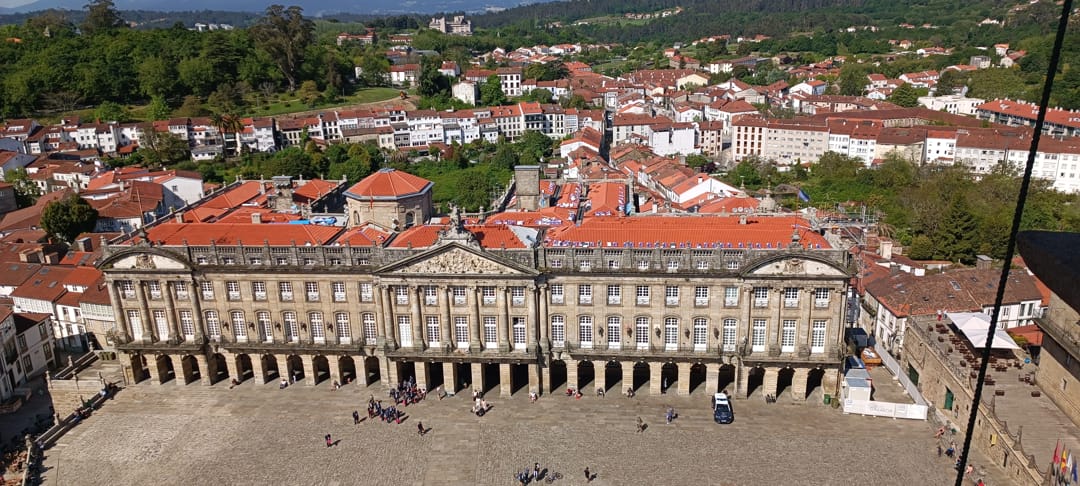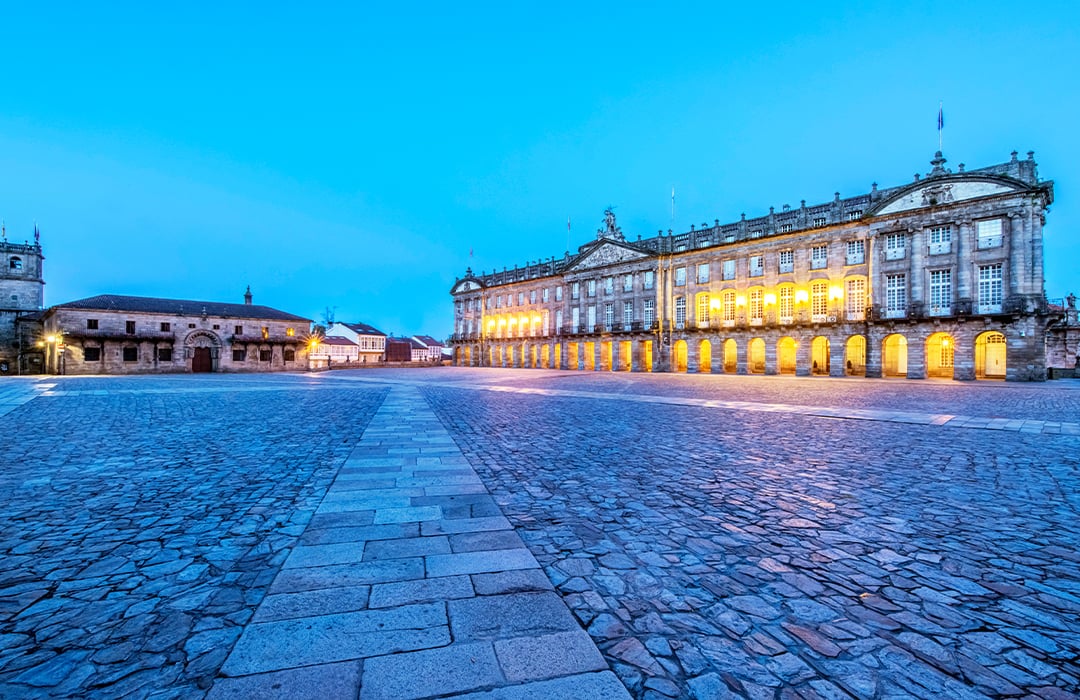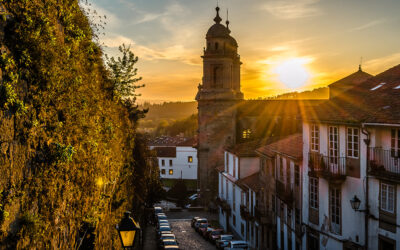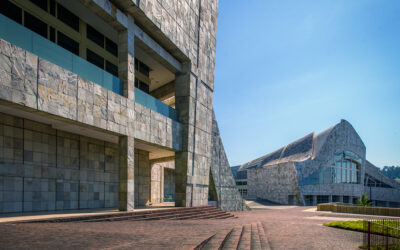In the well-known praza do Obradoiro, right in front of the west façade of the Cathedral of Santiago, stands the majestic
Pazo de Raxoi
a building that deserves a visit for its architecture, beauty and design.
It was built in the eighteenth century by order of Archbishop Bartolomé Raxoi Losada to be the residence of the choir boys, acolytes and priests and served as a jail and town hall. Its design was in charge of the French engineer Charles Lemaur, hence the clear neoclassical style of the building.
The construction of the Pazo de Raxoi was not free of controversy and was involved in disputes and litigation with the administrator of the Royal Hospital, currently the Hotel dos Reis Católicos. He argued that the new palace would deprive the hospital of natural light and obstruct the essential services of entry, exit and ventilation of the rooms.
In spite of everything, the project went ahead. In fact, it helped to enhance the praza do Obradoiro, which until then lacked a worthy building on that side.

The main façade of the pazo follows a symmetrical scheme and is highlighted by a triangular pediment and two semicircular lateral pediments, supported by imposing Ionic columns. In the central pediment, there is a relief that represents the battle of Clavijo, covering the tympanum. Above it is the equestrian sculpture of Santiago Apostle, work of José Ferreiro. The interior features, above all, the rococo staircase designed by Lemaur.
Currently, the Pazo de Raxoi is the headquarters of the City Council of Santiago de Compostela and the Presidency of the Autonomous Government. This imposing building houses the city’s main political institutions, and its importance as a center of government extends beyond its architecture and historical heritage. It is a symbol of governance and tradition.
It is open to the public all year round, except weekends. Although visitors cannot access all areas, they can observe the incredible façade and enjoy the architectural beauty that characterizes it.
The Pazo de Raxoi represents a unique combination of history, architecture and government. Its presence in the heart of Santiago de Compostela is a constant reminder of Galicia’s rich cultural and political heritage. As a witness to historical events and as the seat of the current administration, the pazo continues to be a symbol of power and representation in the region, captivating visitors and residents alike.






